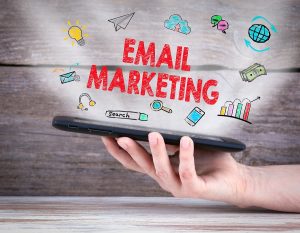Whether you have a blog, an online store or a company website, visibility for that website is vital. Promoting your website to drive traffic to it is important, but it requires knowhow and effort. Here are some tips to help.
Your website could be a personal blog or one that provides information; it could be an e-commerce portal, an interactive community, a photo/video sharing site, directory, self-help or wellness space. Whatever be the type of website, you need to let people know it’s there. People looking for a product, service or content need to be able to find it.
The following pointers will help get you moving in the right direction.
- Work on web design: It isn’t just aesthetics that matter here. Quality images and a good-looking site are important of course, but web design also has to do with the overall ease of using a website. Busy interfaces, illegible or small fonts or poor organization, difficulty in navigating the site or finding information are some problems you want to work to eliminate.
- SEO (Search Engine Optimization): The content on your website should not only be useful, it should be optimized for the search engine. It should include the keywords people are most likely to type into Google’s search box (but don’t overdo this).
 According to a study, 33% of web traffic goes to sites listed at the top of search engine results. Remember, few people bother to go to page 2 of Google’s search results, so it is important to try and gain first page rankings. Be wary of over-optimizing though, as this is considered spammy and can be penalized.
According to a study, 33% of web traffic goes to sites listed at the top of search engine results. Remember, few people bother to go to page 2 of Google’s search results, so it is important to try and gain first page rankings. Be wary of over-optimizing though, as this is considered spammy and can be penalized. - Google AdWords: It works like this – when users put a search term into Google, they see ads that match. When they click on the ad, the advertiser is charged accordingly. Hence the term, ‘Pay Per Click’. Google is the undoubted market leader in online advertisements – replying to over 3.5 billion search queries in a day. So advertising on Google offers you the widest reach and the best access to potential users. There is also a wide range of ad formats to choose from.
- Facebook ads: And YouTube ads, and Instagram ads …you get the picture. Your presence on social media is vitally important considering how much time the average net user spends on these. And since Facebook is looking at people’s timelines and feeds to understand their interests, users see ads that are targeted at them. Apart from ads, your website should also have dedicated Facebook, Instagram, Pinterest and Twitter pages and a YouTube channel (if relevant to your industry) where you post updates, share interesting info, entertaining content, deal with user complaints and respond to suggestions. This interaction with users is important.
- LinkedIn: This professional network is one that you ignore at your own peril. Your website’s LinkedIn profile gives you visibility. Advertising here generates leads, creates brand awareness and helps expand B2B business. You can also upload interesting content here such as articles, studies relating to your niche and so on.
- Email marketing: Yes, everyone now has spam filters and hangs out on social media a lot more. However, email marketing is still relevant. A website newsletter than offers a lot of information and also includes some sales tactics can be quite effective.
 Make the subject line catchy enough to make the person open the email and ensure that your content is engaging enough to keep the user on the page. Time the email right and it could end up being a useful site promotion tool for you.
Make the subject line catchy enough to make the person open the email and ensure that your content is engaging enough to keep the user on the page. Time the email right and it could end up being a useful site promotion tool for you. - Create interesting content: Guest blogging for a popular blog with links to your website is a great way to get noticed. Creating a fun video that is also a call to action can generate a lot of traffic, especially if it is interesting enough to go viral (something people share of their own volition: think WhatsApp forwards). Choose topics that are trending or controversial right now. Create your content around that to get people interested and to start a conversation around your content.
- Backlinks are still important: Simply put, backlinks are inbound links to a webpage. For a long time, backlinks were the most important determinant for Google’s page rank. Commenting on blog posts and submitting content to web directories is a bit old fashioned now. Google has smartened up to know what’s organic and what isn’t. Think quality over quantity. Build relationships with other website owners in your niche and related fields, contribute meaningful and helpful content, and provide value to your visitors. This will work in the long term to help you gain organic backlinks that have credibility. Examine your competitors’ backlinks; this will give you a good idea of what will work for you as well.
- Word of mouth: Review websites, online forums and social networks are where people recommend services and products. Try to gain positive reviews and recommendations from users and to get Facebook likes to create positive word of mouth about your website. Contribute to sites like Quora to build an online following for yourself and your company.
- Work on PR: If you or your website get written about in popular print media publications, get mentioned on top blogs or news websites, this not only gives you visibility, it also builds credibility for your brand. Building your reputation – online and offline – is still as important as it used to be. It is something that creates trust and is very effective for driving traffic to your website.
Think long term. Work on providing a good user experience to your visitors. Spread the word, contribute meaningfully, and most importantly, don’t worry too much about Google! It’s smart enough to sniff out the truly good websites.















































